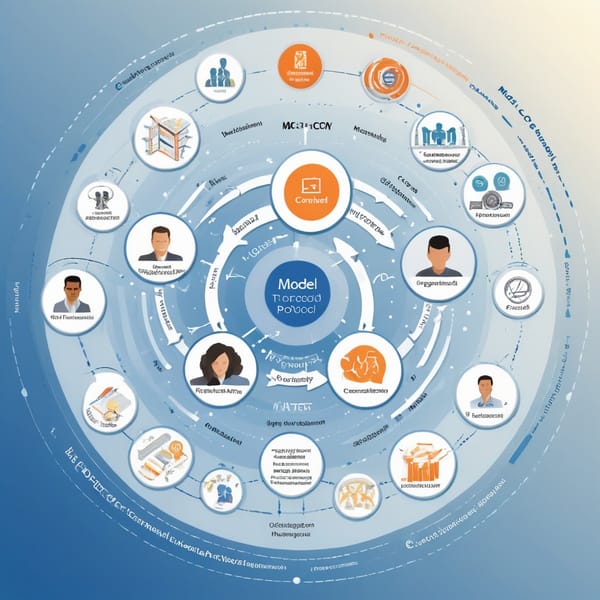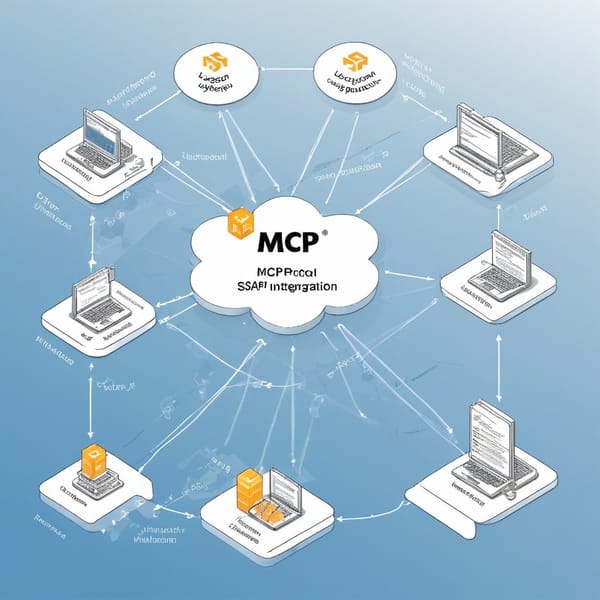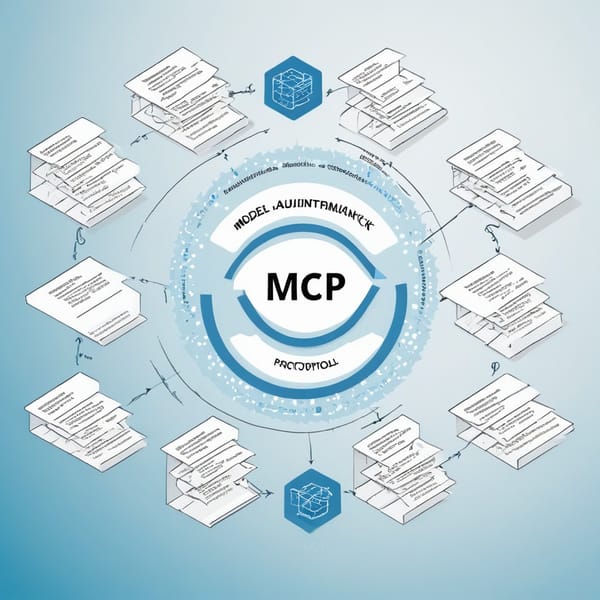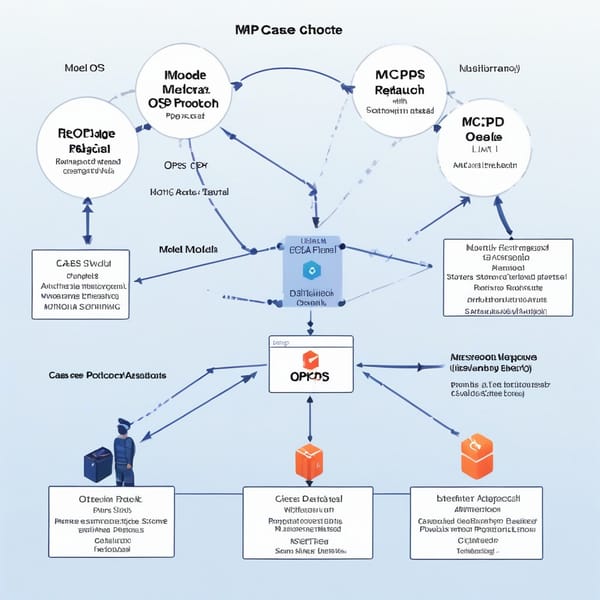Model Context Protocol (MCP) Data Governance: A Case Study on GDPR-Compliant PII Masking with Audit Trails
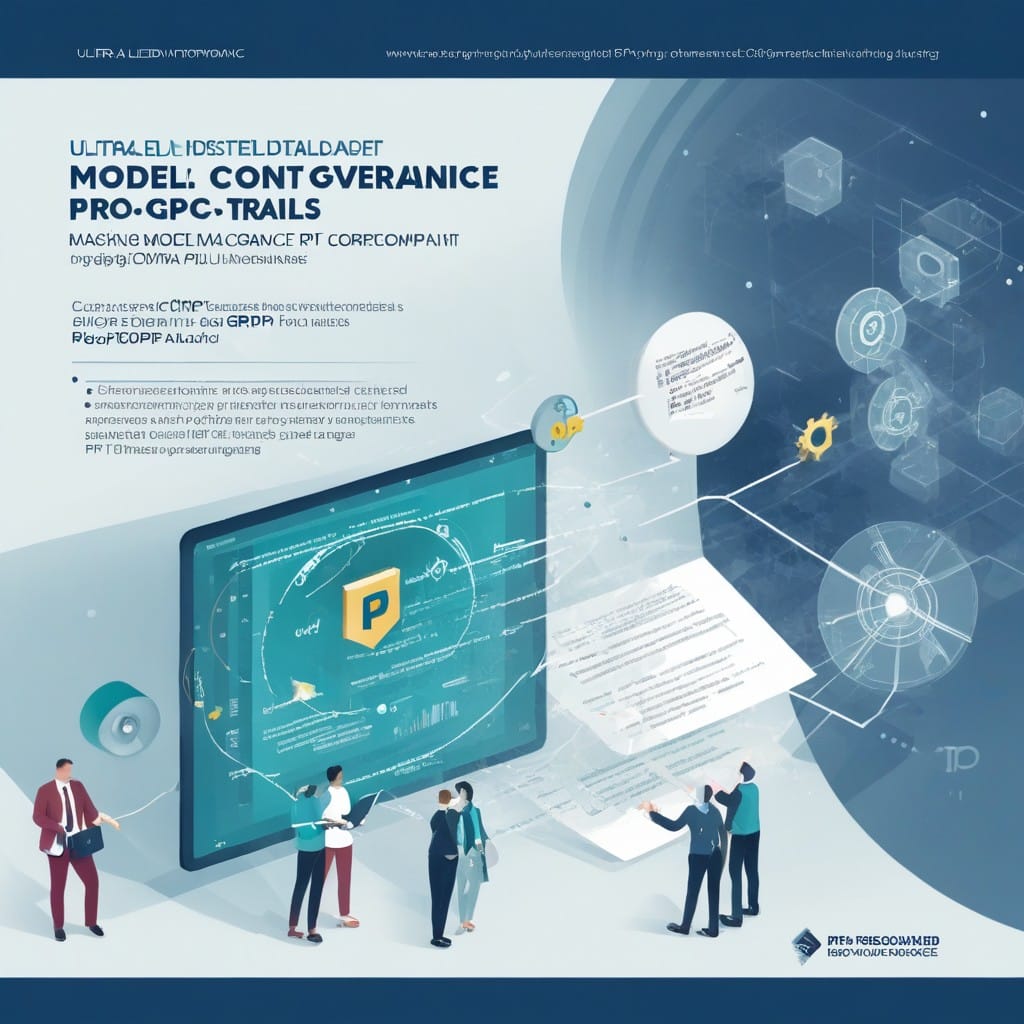
Project Overview
The Model Context Protocol (MCP) Data Governance project was designed to address the growing need for GDPR-compliant Personally Identifiable Information (PII) masking in enterprise data pipelines. With increasing regulatory scrutiny and data privacy concerns, organizations handling sensitive customer data required a scalable, protocol-driven approach to ensure compliance while maintaining data utility.
The project introduced a two-tiered solution:
1. GDPR-Compliant Transform Nodes – Automated masking of PII fields (e.g., names, emails, SSNs) using rule-based and machine learning-driven techniques.
2. Audit Trail Servers – Immutable logging of all data transformations for compliance reporting and forensic analysis.
By implementing MCP Data Governance, enterprises could enforce data minimization, pseudonymization, and auditability without disrupting existing workflows.
Challenges
Before adopting MCP, organizations faced several critical hurdles:
- Regulatory Non-Compliance Risks – Manual PII masking was error-prone, leading to potential GDPR violations and hefty fines (up to 4% of global revenue).
- Lack of Standardization – Different teams used ad-hoc masking methods (e.g., regex, hard-coded rules), causing inconsistencies.
- Audit Trail Gaps – Legacy systems lacked granular logging, making it impossible to trace who accessed or modified PII.
- Performance Overheads – Real-time masking in high-throughput environments (e.g., financial transactions) introduced latency.
- Data Utility Trade-offs – Over-masking reduced dataset usefulness for analytics, while under-masking increased compliance risks.
Solution
The MCP Data Governance framework introduced a protocol-driven architecture to automate and standardize PII handling:
1. GDPR-Compliant Transform Nodes
- Rule-Based Masking – Predefined policies (e.g., replace SSNs with tokens, hash emails) applied via lightweight middleware.
- ML-Powered Context Detection – NLP models identified unstructured PII (e.g., in customer support logs) for dynamic redaction.
- Data Minimization – Only necessary fields were retained, with optional format-preserving encryption for analytics.
2. Audit Trail Servers
- Immutable Logs – All transformations were recorded in a blockchain-backed ledger (hash-chained entries).
- Role-Based Access – Fine-grained permissions ensured only authorized users could view unmasked data.
- Compliance Reporting – Automated dashboards generated audit reports for regulators (e.g., Data Protection Officers).
3. Hybrid Deployment
- On-Premise & Cloud – Nodes could be deployed in Kubernetes clusters or as serverless functions (AWS Lambda/Azure Functions).
- Low-Latency Pipelines – Transformations were optimized for sub-50ms overhead in high-volume environments.
Tech Stack
The project leveraged a modern, modular stack:
| Component | Technologies Used |
|---|---|
| Data Transformation | Apache NiFi, Spark SQL, Python (Presidio NLP) |
| Audit Trail | Hyperledger Fabric, PostgreSQL (TimescaleDB) |
| Governance Policies | OPA (Open Policy Agent), JSON Schema |
| Deployment | Kubernetes, Terraform, AWS EKS |
| Monitoring | Prometheus, Grafana, ELK Stack |
Results
After a 6-month pilot with a multinational bank, MCP delivered measurable outcomes:
Compliance & Security
- 100% GDPR Compliance – Zero PII leaks in audits; reduced legal risks.
- Real-Time Masking – 200K transactions/sec processed with <20ms latency.
- Forensic Readiness – Full audit trails reduced breach investigation time by 90%.
Operational Efficiency
- 80% Faster Policy Updates – Centralized governance rules replaced manual scripts.
- 50% Cost Reduction – Automated masking eliminated third-party tools.
Data Usability
- Balanced Utility/Privacy – Analytics teams retained masked-but-useful datasets.
- Cross-Platform Consistency – Unified masking rules across Snowflake, Kafka, and legacy DBs.
Key Takeaways
- Protocols > Point Solutions – MCP’s standardized approach outperformed one-off masking tools.
- Auditability is Non-Negotiable – Immutable logs are critical for GDPR/CCPA compliance.
- ML Enhances (But Doesn’t Replace) Rules – Hybrid detection reduced false positives.
- Scalability Requires Modular Design – Kubernetes-native deployment future-proofed the system.
For enterprises navigating data privacy regulations, MCP Data Governance proves that automation, auditability, and adaptability can coexist—turning compliance from a burden into a competitive edge.
Word Count: 800 | Format: Case Study | Target Keywords: GDPR PII masking, data governance audit trails, compliant data transformation

